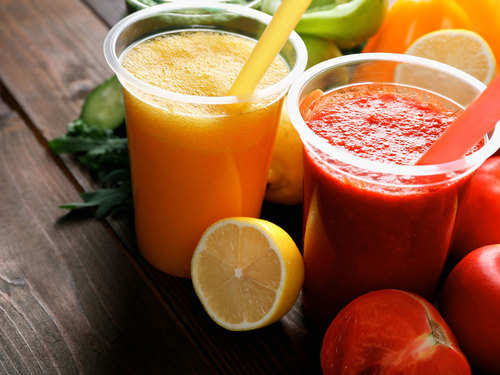Nigeria’s annual expenditure of a whooping N165 billion on the importation of juice concentrate could be reduced through the training of farmers and food processors, a top official of Raw Materials Research and Development Council (RMRDC) said.
Fruit juice concentrate is fruit juice from which most of the water has been extracted to form a thick syrup.
Mrs Asabe Mustapha, the Assistant Director, Textile and Garment Division, at RMRDC, said this on Friday in Abuja at the end of a 5-day capacity building training organised by the council in collaboration with the Islamic Development Bank (ISDB) in a reverse linkage programme.
“The importation of concentrates has adversely impacted local fruit cultivation for juice processing, resulting in significant annual losses and capital flight, ” she said.
She lamented that the dependence on imports has impeded the competitiveness of local fruit juice production, hindering investment prospects in value addition and processing of tropical fruits within Nigeria.
Mustapha said it was in order to mitigate the challenges that “the Reverse Linkage Programme aims to achieve several objectives, including capacity building in process technology for juice concentrate production.
“This training will address major constraints in the fruit industry, promote elite accessions of tropical fruits, and foster investment in local fruit juice concentrate plants.”
Mustapha who is also the Coordinator of the RMRDC/ISDB Reverse Linkage Programme, noted that agriculture plays a vital role in the Nigerian economy with the fruit and vegetables sector holding immense potential for economic growth and prosperity.
She expressed regret for the over-dependence of Nigerians on foreign concentrates and called for the encouragement of indigenous technological capabilities to enable Nigeria to become a major player in the global technology space.
According to her, the primary mandate of RMRDC is to foster self-reliance by optimising the use of local raw material resources for sustainable industrial growth and advancement within the country.
“ Noteworthy programmes of the council include annual distribution of improved agricultural seeds to farmers through farmers’ associations and capacity building initiatives for best agricultural practices,” she added.
The RMRDC official stated that the council is working closely with relevant institutions to develop new and improved varieties of agricultural seeds.
“ There are several challenges that hinder our agricultural progress, and it is our responsibility to address them collectively.
“That is why the council is collaborating with the Islamic Development Bank to enhance capacity in the fruits and vegetables value chain of production, processing, storage, and marketing,” she said.
She maintained that the training would increase awareness and interest in fruit juice concentrate production, reduce the need for importation, and enhance competitiveness in the fruit industry.
“ The training focuses on fruit juice concentrates, including but not limited to orange, pineapple, mixed fruit, apple, red grape, mango, and guava concentrates.
“ This training also concentrates on efficient transportation of fresh fruits, storage while preserving the essential nutrients and flavors of the fruit and reducing wastage,” she said.
The News Agency of Nigeria (NAN) reports that no fewer than 50 farmers and food processors were trained in the processing of fruits and vegetables.









